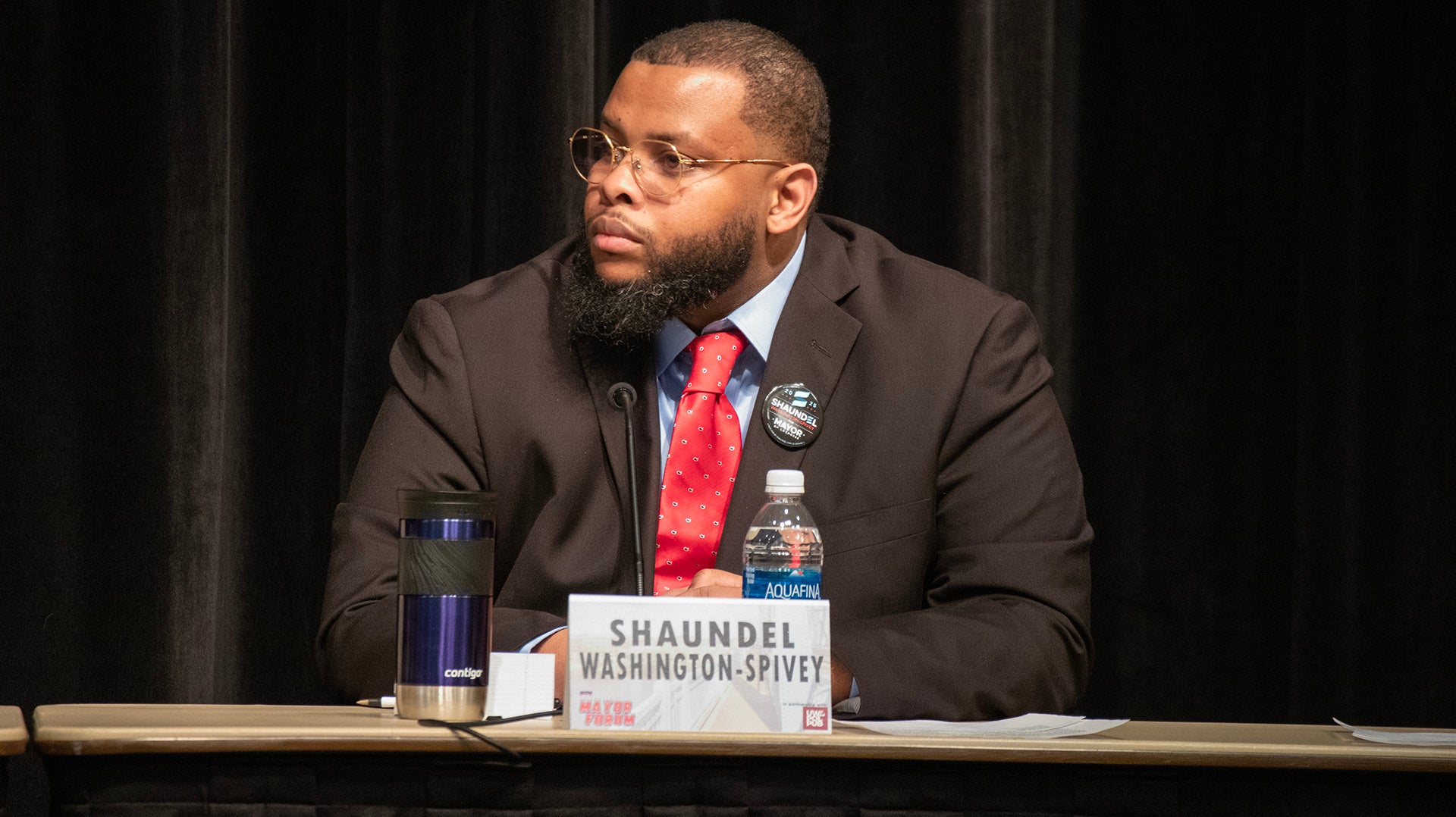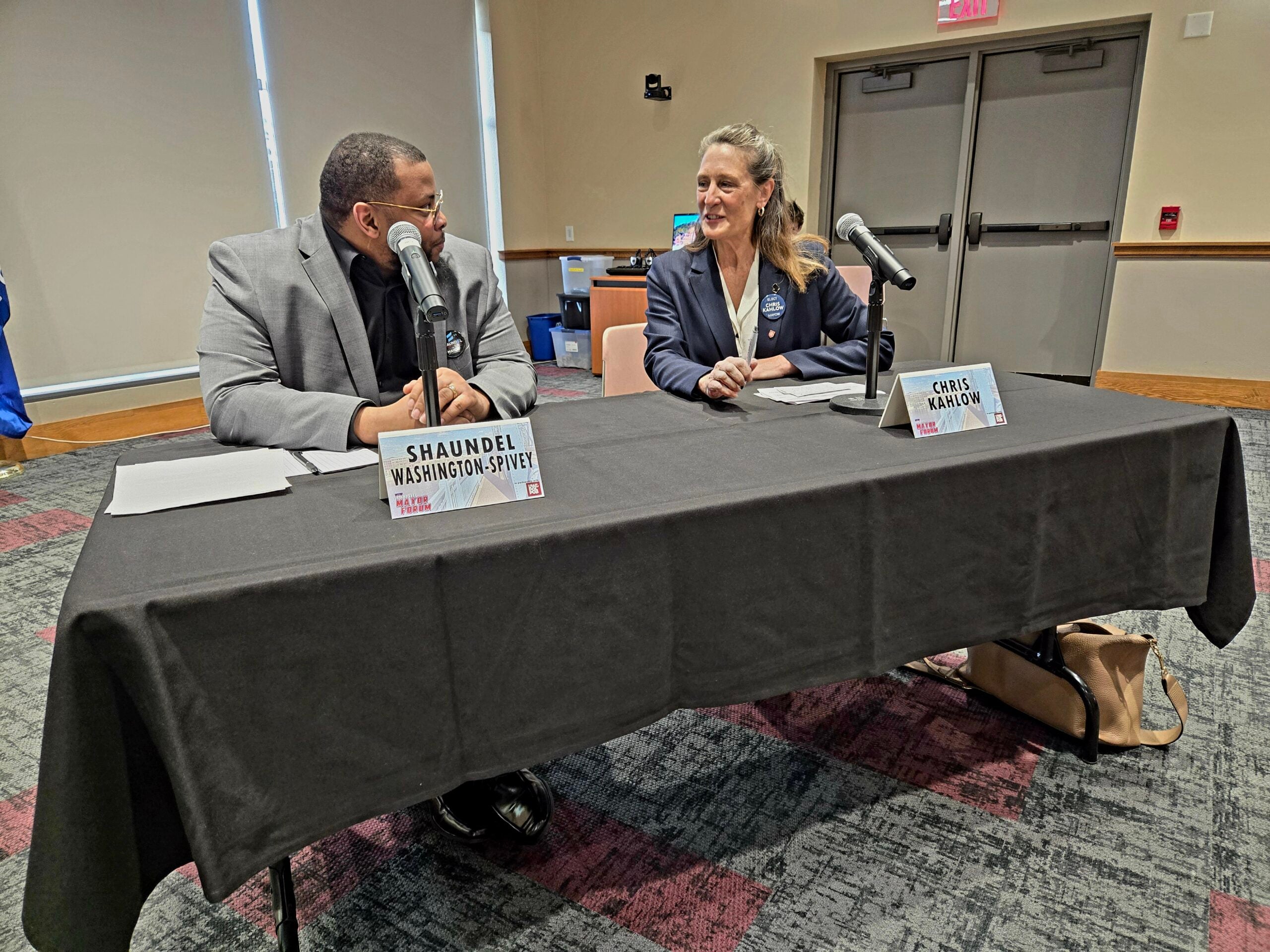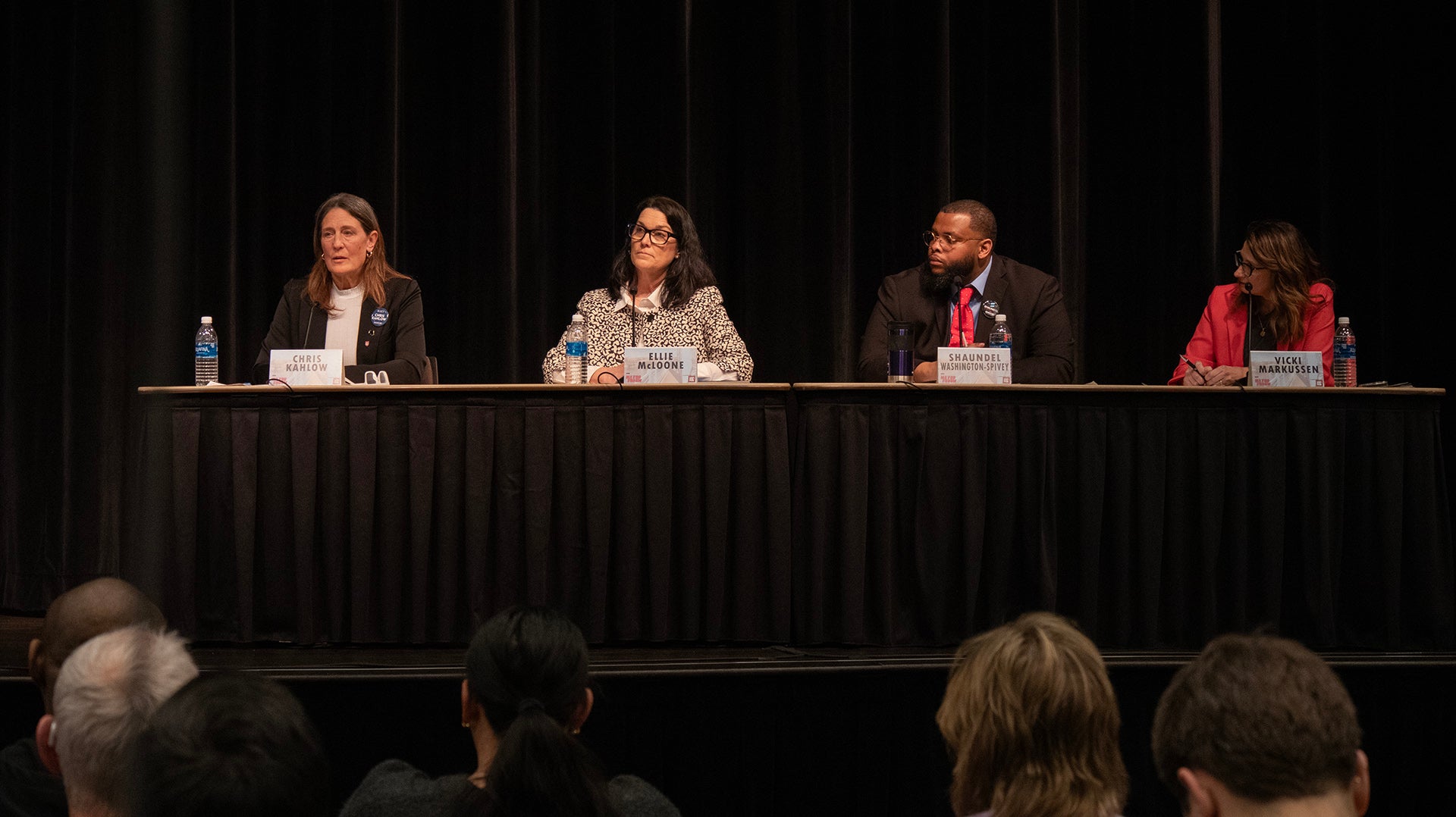For the newly elected mayor of La Crosse, identity matters.
On April 1, voters elected Shaundel Washington-Spivey, making him the city’s first Black mayor and the first openly gay person to hold the office.
Prior to his election, Washington-Spivey served on the La Crosse School Board, and he currently serves on the Governor’s Equity and Inclusion Advisory Council.
News with a little more humanity
WPR’s “Wisconsin Today” newsletter keeps you connected to the state you love without feeling overwhelmed. No paywall. No agenda. No corporate filter.
His roots are in community organizing — he co-founded the La Crosse-based nonprofit Black Leaders Acquiring Collective Knowledge, or B.L.A.C.K, Inc. Despite recent attacks on diversity, equity and inclusion at the federal and state levels, he believes in the values of DEI.
The new mayor recently talked with WPR’s “Wisconsin Today” about the intersection of identity and politics and his hopes for La Crosse during his term.
This interview has been edited for length and clarity.
Kate Archer Kent: You serve on a council that advises Gov. Tony Evers on how to further equity and inclusion in state government. With diversity, equity and inclusion under siege at the federal level, how do you look to advance those priorities in your own community as the new mayor?
Shaundel Washington-Spivey: [The council] is in a current state of, “Let’s sit down, talk through what’s happening both statewide and nationally, and regroup and refocus.”
I think [DEI] largely has come under attack because there’s a lack of knowledge and a lack of understanding, but also there’s been this push to make it seem as if it’s this really bad thing that we’re doing to people.
The reality is that when we talk about diversity, equity and inclusion, it is really about making sure that everybody is represented at the table equitably, making sure that we acknowledge our history and learn from it, and of course, try not to repeat the harms that have been done to marginalized communities.
KAK: What might that look like in action in La Crosse?
SWS: I am a community organizer; I started a nonprofit here. A lot of the work that I’ve done in this community has been about bringing people together and working through issues, and so I don’t plan to change that.
When I ran my campaign, I specifically talked a lot about building a La Crosse where everyone belongs and feels safe and has the resources equitably to be able to thrive and be successful in this community. And I stand behind that. And when I think of some of the challenges and opportunities that La Crosse has, I look forward to bringing people together to say, “How can we make this happen? How can we better address this? How can we better serve our constituents?”
KAK: But when people don’t see eye to eye, how do you bridge those gaps and move forward with solutions?
SWS: A lot of compromising, obviously. But then also … We can have conversations, we can come to compromises, but if your compromise is in any way something that is harmful to me or to people, I think that’s when we have to have a different conversation. And I’m not trying to make it seem like it’s easy, either. Unfortunately, not every situation can always be a win-win. But I hope that we come to a compromise that at least shows dignity and respect.
KAK: You are the first Black mayor of La Crosse, also the city’s first openly gay mayor. How do your identities inform your work as a city leader?
SWS: Our identities and who we are matter. It helps us shape how we view people, and also it impacts how people view us. So you can’t ignore your identity. … Race is a social construct, but the reality is that it has existed for a long time. Race matters.
When I think of me being the first Black, openly gay mayor, it doesn’t necessarily tell you how I’m going to run the city. But who I am matters, and my identities have helped shape my worldview and my experiences, both growing up in Milwaukee and being here in La Crosse. So as mayor, I hold on to my identities because those identities can also show me how to be a community member, to connect with people and build community with people.
What I bring to this role as well [is] looking and examining how we can truly explore policy, ordinances [and] even city practices to ensure that we are being equitable in our decision-making. To ensure that our community is really a safe place where everybody feels that they can belong, have access to resources, be able to thrive, and understand how to navigate the system.
KAK: How do you want to make your mark as mayor over the next four years? What do you want to be known for?
SWS: For me, it’s just a matter of making sure that I’m a mayor who helped propel this city into a direction of forward-thinking — being community-driven and accessible to the people.





